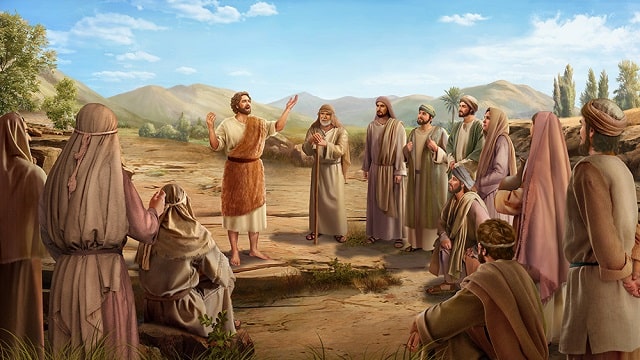Question 2: God’s name in each age cannot represent God’s all, so what is the significance of His name in each age?
Answer: This question is very critical. Today Almighty God has already told us the answer. He says, “‘Jehovah’ is the name that I took during My work in Israel, and it means the God of the Israelites (God’s chosen people) who can take pity on man, curse man, and guide the life of man. It means the God who possesses great power and is full of wisdom. ‘Jesus’ is Emmanuel, and it means the sin offering that is full of love, full of compassion, and redeems man. He did the work of the Age of Grace, and represents the Age of Grace, and can only represent one part of the management plan. That is to say, only Jehovah is the God of the chosen people of Israel, the God of Abraham, the God of Isaac, the God of Jacob, the God of Moses, and the God of all the people of Israel. And so in the current age, all the Israelites apart from the tribe of Judah worship Jehovah. They make sacrifices to Him on the altar, and serve Him wearing priests’ robes in the temple. What they hope for is the reappearance of Jehovah. Only Jesus is the Redeemer of mankind. He is the sin offering that redeemed mankind from sin. Which is to say, the name of Jesus came from the Age of Grace, and existed because of the work of redemption in the Age of Grace. The name of Jesus existed to allow the people of the Age of Grace to be reborn and saved, and is a particular name for the redemption of the whole of mankind. And so the name Jesus represents the work of redemption, and denotes the Age of Grace. The name Jehovah is a particular name for the people of Israel who lived under the law. In each age and each stage of work, My name is not baseless, but holds representative significance: Each name represents one age. ‘Jehovah’ represents the Age of Law, and is the honorific for the God worshiped by the people of Israel. ‘Jesus’ represents the Age of Grace, and is the name of the God of all those who were redeemed during the Age of Grace. If man still longs for the arrival of Jesus the Savior during the last days, and still expects Him to arrive in the image He bore in Judea, then the entire six-thousand-year management plan would stop in the Age of Redemption, and would be incapable of progressing any further. The last days, furthermore, would never arrive, and the age would never be brought to an end. That is because Jesus the Savior is only for the redemption and salvation of mankind. I took the name of Jesus for the sake of all the sinners in the Age of Grace, and it is not the name by which I shall bring the whole of mankind to an end” (“The Savior Has Already Returned Upon a ‘White Cloud’” in The Word Appears in the Flesh).










